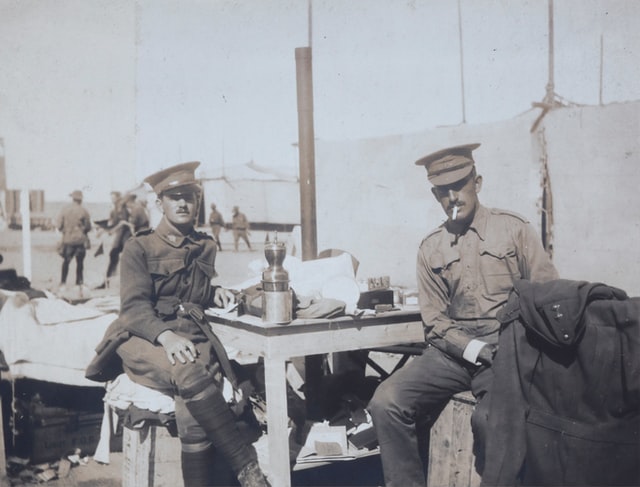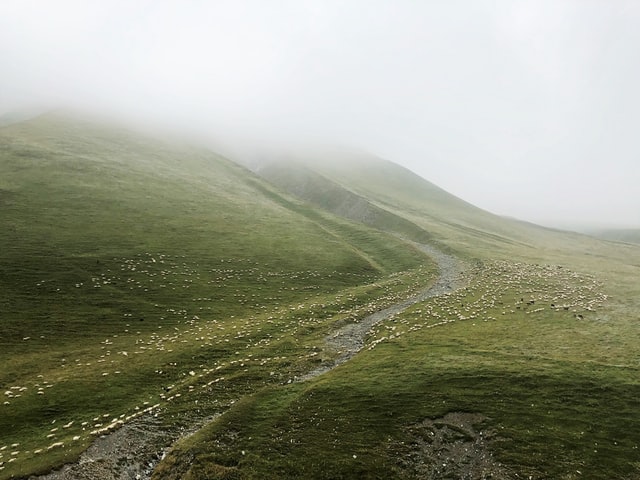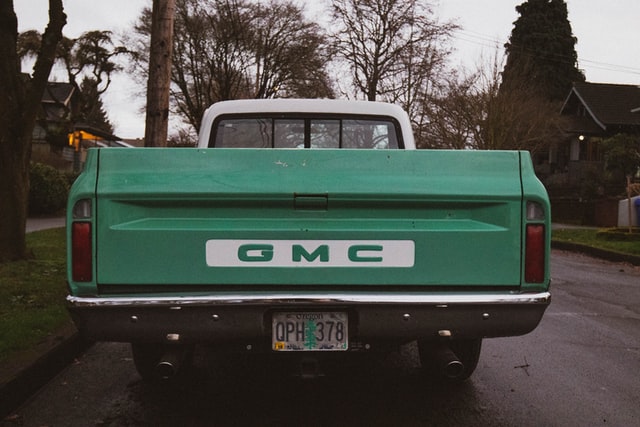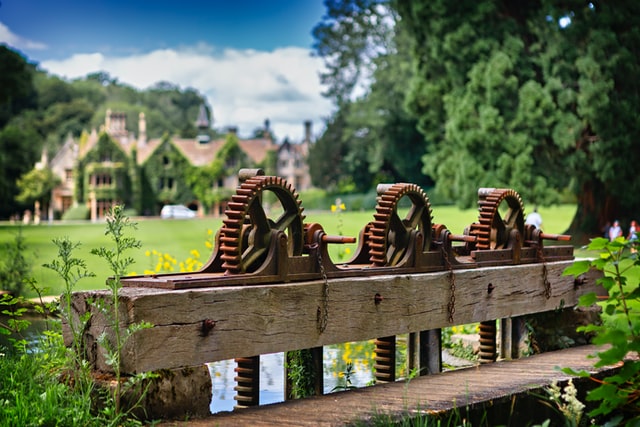by Daniel Deisinger
“Come now, Cornelius, this shouldn’t be an issue for you. You made a machine to tilt your teacup for you. No locked door can keep you out!” The professor grunted and wheezed, rattling the key inside the lock until, at last, the door gave way, and he tumbled into his office. His papers spilled into the room, his cane bounced away, and his hat ended up crushed under his back, collapsed like a bellows.
He rolled to his knees and retrieved it, shaking his head. “I must complete the hat de-crusher I’ve been working on.” He found his feet and switched on the light. Electric lamps sprang to life around him as he shut the door.
Someone opened it back up. “Professor Cogsworth?” the man said. He had a pair of goggles resting on his bowler, as well as a second pair about his neck.
“Yes?” Cornelius said, bending and gathering his papers. “Something I can help you with? Office hours are on Wednesdays.”
“I’m not a student, sir.” The man removed his hat. “I’m with the church, actually.” He lifted the goggled around his neck, revealing a smudged clerical collar. “Parson Whiplish.”
He put his hand forward, and Cornelius shook it, smiling. “A pleasure to meet you! Won’t you sit? A cup of tea, perhaps? You won’t even have to tilt it yourself! I’ve a machine for that.”
“Yes, Father Russet said you have a knack.” The parson stepped into the room.
“Father Russet! How is the old gent? Getting on?”
“Getting on, professor.”
“Excellent!” Cornelius gathered his papers, then put the kettle on. “To what do I owe the pleasure, parson?” His face fell. “I haven’t committed a heresy, have I?”
The parson shook his head, chuckling. “Nothing of the sort, professor. In fact, the Father recommended you. You see, we have a bit of a mystery on our hands.”
Cornelius fiddled the modified dials on his hot plate. The wall above had a large scorch mark. “A mystery? Surely you should contact the police? The only mysteries I tackle have to do with how certain students got into the university. Would you mind finding my cane? It’s about somewhere.”
“That’s the thing, professor. We went to them first, but there have been no crimes committed, far as we can tell.” The parson picked up the cane. “They’ve got a man there, but he’s doing little more than wasting his time. So he says, anyway.”
“Hm.” Cornelius looked up and took out his pocket watch. “Oh blast.” He took out his other pocket watch and used it to set the first. Both watches pocketed, he held out his hand. “My cane?”
The parson placed it his palm, and the Cornelius aimed the end at the opening into the teapot. He pressed a button; leaves fired out the cane, and Cornelius covered the pot. “Where is there?”
“The parsonage park. It’s on Lonsbury Lane? Gethsemane Gardens, it’s called.”
“Of course! Wonderful walking I’ve had there. Ah, trees. Almost as lovely as a fine bit of gearwork. Now, what about it?”
The parson took a breath. “Well, that’s just the thing. Gears.”
Cornelius perked up. “Gears you say?”
“That’s right, professor. The caretaker has found them scattered about. Every morning. I wouldn’t know them from Jack, but Father Russet suggested you could come and take a look.” He stepped forward. “I know the school year has just begun, but…we need an expert, you see. I’m not as knowledgeable in how all those things work.”
“Hm. Gears strewn about? Any discernible pattern?” Cornelius asked. Whiplish shook his head. “Well then. I suppose I could make time in my schedule. Things are usually quiet this early. It isn’t until the end of the term students start badgering me. Tomorrow morning? I’ll drop by ’round nine. Oh, tell your man not to clean up any of the gears, will you?”
“Yes, professor. Thank you. I’ll see you tomorrow.”
“Of course you will. Won’t you stay for tea?”
“I’m afraid I must return to my work. God keeps us busy.”
“Right-o. Tomorrow then!”
Parson Whiplish backed out of the room and closed the door. The frosted glass window read Cornelius Cogsworth, Professor Emeritus of Steam Studies.
#
Cornelius strolled to the park a few minutes before nine. His cane danced over the sidewalk, and his going-out goggles reflected the fresh sunshine in hazy globs of light. He pulled out one pocket watch, then the second, clicked both shut, and resumed his stroll through the Gethsemane Garden gates.
A police officer, wearing a sharp gray uniform–standard-issue police goggles perched on his brow–nodded at him, and Cornelius nodded back.
Sun peeked through the leaves. Random circles of sunlight danced on the ground, and gears flashed. Like pennies they glittered, some hiding on their own and others piled together. Cornelius gazed at them, mouth mulling in a circle under his curled mustache until a voice hailed him from behind.
“Professor, good morning,” Whiplish said.
“And a good morning to you too, parson! I suspect this is the gent who’s been keeping an eye on things?” Cornelius indicated the officer.
“That’s right.” As Whiplish spoke, the officer stepped close. “Professor, may I introduce Sergeant Tillibrim. Sergeant, Professor Cornelius Cogsworth.”
“Hm.” Cornelius and Tillibrim shook hands. “A pleasure, my good man. The parson has asked if I would take a look at things to see if there is an explanation for all this.” Cornelius indicated the gears.
“It’s probably nothing,” Tillibrim said. Cornelius crouched and picked one of the gears up. “Youth, pro’ly. Being reckless and such. Taking some of the cast-off gears from the shops and doing what have you with them.”
“How long have you been here, Sergeant?” Cornelius asked, turning the gear over in his hand.
“All night. Didn’t hear a thing. They’re sneaky, these days.”
“That they are, my good sir, that they are.” Cornelius stood, bringing the little gear into the sunlight. “Hm.” He bent and scooped up a few more. “Hm.”
“What is it?” Whiplish asked.
“Take a look and see,” Cornelius said, and the two men crowded around him. “The gears aren’t uniform. This one-” he lifted the first- “is round, with sharp teeth. This second one is more oval, with flat teeth, and finally this one is almost square, with rounded teeth.”
“What’d I tell you?” Tillibrim said. “They gather up the cast-offs, and throw them over the wall.”
“But the gears have been appearing every night for a week,” the parson said. He fiddled the goggles around his neck. “If a child does something once, on a lark, it’s mischief. If he does it every night for a week-“
“It becomes a chore.” Cornelius regarded Whiplish. “Child antithesis. Parson, have the gears been appearing every night?”
“I suppose I don’t know for certain,” Whiplish said. “But Morris would know. He’s the groundskeeper.”
“Let’s speak with him next,” Cornelius said. He turned to Tillibrim. “Good day, officer. I’m sure we’ll meet again.”
Whiplish led him to a corner of the park. Piles of gears lay under every tree, scattered across the paths and around bushes. “It couldn’t be children,” Cornelius said. “There are thousands.” He stopped and bent again. “And every one is unique–number of teeth, size, even slight variations of color.” He bounced a few in his hand, then slipped them into his pocket. He stood, stretching his back and chewing on his mustache. He leaned forward on his cane. “Have there been any other mysteries here, parson?”
“Mysteries?” Whiplish rubbed his chin. “No, nothing. Pests, I suppose. But that’s all.”
“Hm.” Cornelius nodded. “Well, lead on.”
A few minutes later they arrived at a large, open shed. Numerous sharp tools hung on pegs against the wall. Wheelbarrows, pots, and buckets took up the floor. Saplings, sprouts, and sacks of soil piled on workbenches against the walls. A man wearing grimy overalls, grimy gloves, and grimy goggles stood with his back to them, transferring shoots from large pots to smaller ones.
Whiplish knocked on the open door. “Morris? Do you have a moment?”
The man spun, revealing a grimy face. He left his workbench, meeting them at the entrance. “This is Professor Cogsworth,” Whiplish said. Cornelius tipped his rumpled hat. “He’s taking a look at all those gears you’ve been finding to see if he can figure out where they’re coming from.”
Morris grunted, slapping off his gloves. “Darnedest thing,” he said, mouth rolling under his grimy mustache. “Just showed up ’bout a week ago, all over. I swept ’em up, course, but next morning there were more even than before.”
“Every morning?” Cornelius asked.
“Yessir.” Morris crossed his arms. “All this steam and gear such-and-such. It’s not right, I tell you.”
“Sir.” Cornelius drew himself up, hands clamped atop his cane. “The preponderance of steam power has done wonders for our modern world! Travel is quicker, goods are cheaper, jobs are safer, and food is tastier! As a professor of steam studies at the university, it’s my job to further this realm of realistic magic! Haven’t you ever seen the dancing towers of North Umbric? Perhaps the New Parthenon in Athens? Stirring, I’m told. Ah, and if you’ve ever had the chance to witness-“
“My job is plants,” Morris said, grimy face wrinkling. “And the plants don’t like the gears.”
“Then I’ll do my best to figure out where they’re coming from. Anything else you can tell me?”
“Not a thing.” Morris turned back to his workbench. “‘Scuse me. I’ve work.”
“Of course. I didn’t mean to detain you.”
“Quiet gent, isn’t he?” Cornelius asked as they left the shed.
“He’s a good man,” Whiplish said. “Does his work well. So?” He asked. “Do you know where the gears are coming from?”
“I have a few ideas,” Cornelius said. “But nothing I can say with any confidence.” Cornelius took out his pocket watch, grunted, and took out his second. “Blast it all! I’ll have to open these little rascals up and tinker a bit once I get back.” He nodded toward the chain leading to one of the parson’s pockets. “Do you have the time?”
Grinning, the parson reached into his pocket and revealed the chain ended at a brass hole in the cover of a bound Bible. “Ah. Well, perhaps a bit of wisdom from the good book, eh?”
Whiplish opened the Bible and read: “‘So Hiram gave Solomon cedar trees and fir trees according to all his desire.'”
“A favorite of yours?” Cornelius asked as Whiplish pocketed the Bible.
The parson shrugged. “Something I spotted a few days ago.” He cleared his throat. “What are you going to do next?”
“An old friend of mine may have a bit of wisdom to impart,” Cornelius said. “I’ll visit him. Who knows? He may give me a clue.” Cornelius glanced down at his hands, full of faulty pocket watches. “I wonder If I can catch the 11:01.”
#
Professor Cogsworth stepped off the train at 11:17 and arranged his coat into place. The train hooted and sprayed steam into the sky, and Cornelius forged on through the crowds, making way for mothers dragging children, businessmen wearing the latest goggles, and old ladies wearing gear earrings and necklaces of brass chain. He stopped at a crowded watch vendor and inquired about the winter models, but they weren’t in yet.
He and the other pedestrians stood at the curb as the corner pole lifted a “cross now” sign. Cornelius passed panting horses of the flesh-and-blood as well as the gear-and-steam variety and started toward his friend’s home.
After triggering the bell, Cornelius adjusted his cravat and got his watch chains untangled as a tune tinkled inside the building. He tried to smooth out his hat, but the wrinkles remained when the door swung open and the butler welcomed him in.
“Tea, sir?” the butler asked, and when he brought the hot water Cornelius had already made himself comfortable. “The master will be done momentarily.”
“No rush,” Cornelius said, smiling.
A few minutes later a great big man came in, the strained buttons on his stretched, rounded waistcoat leading the way. The sunshine reflected off his bald head above a pair of monocles, and his cheeks flushed red. The professor rose and clasped the other man’s hands in his. “Willard, how good to see you.”
“Cornelius, you always know just when to drop by,” Willard said. “I was just admitting to Benjamin a bit of a malaise, and here you are, come to brighten my day.”
“I am at your service, my friend.” Cornelius bowed, and sat, as did Willard. “My watches have been acting all sorts of out-of-sorts these days.”
Willard shook his head. “Spring models?” Cornelius nodded. “You know what they say: ‘Gears in spring, sprung by fall.’ You can see it at a glance. The winter styles have some superb models, I must say.”
Cornelius leaned forward. “You’ve seen them?”
Willard winked and revealed a large watch from his pocket, its guts spinning and second hand ticking away. He handed it over. “Wonderful,” Cornelius said. He spun the watch. The mechanisms danced around each other through the clear glass back. “You’re a lucky man.”
The other man tapped the side of his nose. “Just between us, of course. Dear Synelda procured it for me, but asked I don’t show it in public until they go ‘en marche.'” He pocketed the watch. “Now, what was it you came to see me about?”
“Too clever you are, gent.” Cornelius leaned forward, hands atop his cane, smiling. “It’s the most curious thing. the local parsonage has a park, Gethsemane Garden. Every night, gears appear everywhere. On the path, in the bushes, in the grass.” He took them out of his pocket. “See. They are abnormal. Not one is identical.”
Willard spread them on his large hand as Cornelius fired tea leaves into his hot water. Water splashed, and after Cornelius had finished cleaning and again taken his seat, Willard returned the gears. “Curious indeed. I imagine you have the same thought I do.”
“I imagine so.” Cornelius took a sip of tea. “But it’s impossible. It’s never even been seen on a small scale, and this is quite large.”
“Things move quickly.” Willard hoisted himself up and carried his teacup to the window. He sipped. “Who knows? Perhaps Tesla has come up with something even more ‘shocking’ and ‘world-changing’ than before.” Willard made finger quotes around the words. Both men laughed. “We’ll have to ask him on his next ‘world tour.'”
“Oh Willard, you do tickle me,” Cornelius said. He sipped. “Could it be true?”
Willard gazed out the window. His bulk turned the rest of the room dark. “It’s all too possible. If it is….” He hesitated, then returned to his chair. “You must investigate, Cornelius. You must. Old Tesla will be shunted out of the limelight if it’s true, and you know how much he hates that.”
“His fans would have to find someone else to cover in bloomers.”
“Perhaps it could be you?”
“Pshhaw.” Cornelius swiped the suggestion away. “I’m far too old for bloomers.”
#
When the train pulled back into his home station, clouds had formed, and people disembarking glanced up, concerned, some muttering about how they should have brought their rain goggles. “Must visit Willard more often,” Cornelius said to himself, as he exited the station. “All alone in that big house of his, children off in Europe.” He shook his head. “Shame.”
He stopped at his house to change out his pocket watches, double-checking their replacements ticked as they should. He went back to Gethsemane Garden, passing through the gate as several people left.
“Going to be raining soon, guv,” Tillibrim’s replacement said as Cornelius entered. The officer glanced at the clouds. “Could be a bad one.”
Cornelius made his way through the park until he got to the old stone building the parson used. Morris must have cleared the gears away; Cornelius couldn’t find a single one.
The parson was writing a letter in his office when Cornelius knocked on the open door. “Ah, professor. Do come in.”
“I may have an explanation,” Cornelius said. “But I will need to do some more investigating. Would you allow me to stay here overnight, to study?”
“So you don’t think it’s children?”
“Children? No, no, I’d say it most likely isn’t.” Cornelius leaned forward. “If what my friend and I think is correct, this may be a very important discovery.”
“Important discovery?” the parson said, leaning back. “Gears on the ground? How could such a thing be important?”
“It is not the gears, my friend,” Cornelius said, pacing. “But where they have come from. Have you ever heard of something called ‘Deus Scintilla’?”
“It’s Latin…God spark?”
“Or close enough. It’s a wild theory a few researchers came up with. They think all the power we’re using is enough to change the physical world itself. Birds go from feathered friends to little flying machines of lightweight metal. Fish change from scales to mail.” Cornelius looked Whiplish in the eye. “Trees change from wood and leaves to brass and gears.”
“But that can’t be!” Whiplish stood. “The trees haven’t changed a whit! You can see for yourself!” He pointed out the window. The clouds had grown, and the sun had sunk, darkening the park. “Look! They’re blowing in the wind. Something can’t just…change.”
“It isn’t a proven theory, not yet,” Cornelius said. “But I’d like the chance to study the park regardless.”
Whiplish nodded. “I suppose there’s no harm. Overnight, you said?”
“Yes. It may have something to do with light, or temperature. When does the park close?”
“Eight o’clock in the evening.” The parson led Cornelius to the door. “Could it really be, professor?”
“Hard to say, gent,” Cornelius donned his hat. “But we shall see.”
#
Cornelius returned to the gates of Gethsemane Garden a few minutes before eight, so his pocket watches told him. He wore a heavy overcoat and his rain goggles, and even they helped only so much. Rain sheeted down, washing away the clouds of steam issuing out of factories, river trawlers, homes, businesses, cafes, museums, steam parlors, and baby carriages.
However, it turned the night black and strong, requiring either fanciful two-man hand-torches–one to hold and the other to turn the crank–or old-fashioned flames in covered lanterns. And even they illuminated a few insignificant feet, so when Cornelius stepped inside he found a shivering Whiplish and a miserable Tillibrim.
“What man, in his right mind, would choose to be out here in this madness?” Tillibrim said, as Whiplish ushered Cornelius in and let himself out, holding a ring of heavy keys. “I’ll never understand you steam-punks.”
Cornelius blanched. “Officer, such language is beneath your station. I am a scientist, and I flare at the chance of discovery. Besides–you’ll be here all night as well, yes?”
“With complaints.”
“Only Morris and I have keys,” Whiplish said. “Hopefully this weather clears before too long. But Tillibrim will be outside the gate all night if you need assistance.” He and Tillibrim pulled the gates shut and peered through the bars at Cornelius. “Good luck professor!” Whiplish locked the gates and hurried away. Tillibrim found what shelter he could under a signpost, and Cornelius lifted his covered lantern, turning toward the trees and pulling his coat tight.
He explored the grounds like he had in the morning, peering at the ground for gears. “Rain’s washed them away, if there were any,” he said, wiping the rain from his goggles. He lifted the lantern higher and scanned around himself. The trees cast shadows in whatever light remained, enriching the darkness beneath them. The constant rain muted the rest of nature as it struck paved path, grass, branch, and leaf. Wind gusted his coat around his ankles, sending chill waves through him.
He found a good tree and hung his lantern on a low branch, out of most of the rain. He fell to his knees and hunted through the grass, hoping for a finger to strike a gear. He found only frigid rain, and sat back, scowling, huddled in his coat.
A few hours later the rain had turned away, though sprinkles came running through the branches above Cornelius to smear across his goggles or dampen his coat. The trees had done nothing but dance in the wind and soak up the rain since he had sat down, and aside from the storm, Cornelius could have fallen asleep.
Sometime, perhaps midnight–Cornelius refused to take his watches out in such unfriendly weather, and thus perhaps preserve them–a new noise filtered through the drips and drops all around him. Cornelius perked up and turned his head, trying to find the source, and lowered his lantern from the branch to the ground. He crept around the tree. A murky figure moved beyond the rain.
Cornelius squinted, but the figure blurred. It repeated a motion several times before moving closer. Cornelius snuck behind a bush to get a better view.
The figure moved its arm close to its body, then whipped it out. It made the motion several more times, then came even closer to Cornelius.
Hand gripping his hat, Cornelius crept out from behind the bush, crouched, and slid toward the figure. It became clearer the closer he got.
“Morris!” he said, and the man jumped, spilling his planter’s pot. Its contents scattered across the path, tinkling.
Morris shrank back, fists raised until Cornelius tore the goggles off his face. “What in God’s name are you doing out here, in this weather, at this hour, spreading-” he looked at his feet. Hundreds of small, mismatched gears littered the path, chiming as rain struck them. “What are you doing with these?”
Morris seized his coat. “You shouldn’t be here! The garden is closed!”
“Pardon?”
Morris dragged him through the rain, in the direction of the main gate. “You can’t stay!”
Cornelius swatted his hand away and adjusted his coat. Water poured off his hat. “Explain yourself, my good man! You go about scattering these gears, and then you say you know nothing of them! I will be speaking to the parson about this!”
“It isn’t what you think,” Morris said. He splashed back to the planter’s pot, slipping in the deep puddles. “It’s my fault–don’t worry yourself!”
“Oh, but I am!” Cornelius followed him across the soaked lawn, shouting over the growing rain. “The parson asked me to investigate!” His cane lodged in mud, and as he tried to wrench it out, Morris scurried away. “Morris! Come back here!”
The groundskeeper disappeared into the returning storm. Once he freed his cane, Cornelius ran after him. He’d left his lantern on the tree, and so stumbled through the park blind. Rain-heavy branches hung low in front of his path, and his shoes slid on slick stones.
He glanced around, trying to see through the rain. “Morris!” His foot scattered a pile of gears. “Morris! Come out! Tell me what’s going on!” A structure loomed past the next hill, and Cornelius made for it.
He pushed the door open and entered, dripping rivers off his coat. “Morris?” He looked around. He’d entered the groundskeeper’s shed once more. A few electric lamps gave light, the storm pounded on the roof, and one of the benches stood in the middle of the room, revealing a small hole in the wall. “What in gray blazes?”
The hole lead into the ground, and Cornelius had to squeeze himself in to enter. Crude steps led down, and heat fled the air. He pulled his coat tight. The steps wound in an arc, descending ever farther, and darkness came as the electric lamps from the shed dwindled. Cornelius teased each step out carefully, and then natural light–orange, flickering–grew ahead of him.
Something scuffled over stone, and a muttered voice, tense and high, came to Cornelius’s ears. The clinging sound of many gears rolling over one another began, and Cornelius pressed himself against the side of the tunnel, next to the exit.
He peered around the corner, and his mouth dropped open. His cane fell from his hand.
Morris whirled, holding another planter’s pot. Tiny, misshapen gears filled it, as well as the corners of the small, crude room. A lantern sat at Morris’s feet. Cornelius ignored it, however, in favor of the small metallic tree in the center. Skinny brown limbs hung like vines, tiny gears dotting them. Dirty, rusted roots wound out from the trunk, breaking up the ground and burrowing down.
“Professor!”
“Deus scintilla!” Cornelius said, coming out from the tunnel, gazing at the tree. “I can’t believe it…Morris, do you know what this means?”
“You can’t tell anyone, professor!” Morris said, falling to his knees. The planter’s pot fell from his arms, spilling the gears into those already littering the ground. “I didn’t know what else to do!”
“There’s no need to fear, my good man! Tell me-” Cornelius peered at the metal trunk- “when did you discover it?”
“Discover it?” Morris frowned. “I didn’t! I built it!”
Cornelius turned on him. “What?”
“I…I attended the university, years ago, but…I failed out. But I kept it up, you see. In secret. Nobody liked my designs, so I never showed anyone.” Morris gestured at the tree. “I built this over the years, refinin’ it and improvin’ it. I wanted to make a tree.”
“You made it yourself,” Cornelius whispered, going back to the tree. Tiny, pea-sized gears hung on the small limbs. “And the gears?”
“They’ve been collectin’,” Morris said. He pointed at the corners, full of the gears in varying shapes and sizes. “I was running out of room. I had to get rid of ’em, but…if people saw me taking them out, they’d think I stole ’em. So a week ago I went out at night and started spreadin’ ’em, and then I would clean ’em up during the day. I didn’t know what else to do.”
“The tree is growing the gears. Incredible. Let’s see.” Cornelius ran his hands over the trunk. “It takes materials from the earth and builds the gears itself?” Morris nodded. “A fine design. Morris, you haven’t done anything wrong. I’m sure the parson will need an explanation, and you may want to apologize to Officer Tillibrim, but this is quite an ingenious design. And to think the university kicked you out! You’d be welcome in my class any day!”
“I couldn’t,” Morris said. He rose and picked up the planter, scooping gears into it.
“I think you could. Look at what you made! You could teach, Morris! I’ll speak to the parson. We should be able to get that little tree of yours out into the sun. I bet the parson would welcome it! You won’t have to make this mess every night.”
Cornelius convinced Morris to leave the gears for later. They stood just inside the shed. The storm still pounded. “You should be proud, Morris. I’ve seen a lot in my time at the university, but you really gave me a surprise.” He squeezed some of the water out of his coat. “Would you be so kind as to unlock the front gate for me?”
Morris nodded, scowling at the ground, and they splashed through the park to the gate. “Scientists will come from far abroad to study your tree, Morris,” Cornelius said as Morris lagged behind. “Your little tree will make you famous!”
A blow felled him, and he splashed forward as pain filled his head. He spun around in the water as Morris advanced, hands curled into fists. “Morris!”
“They can’t know!” He jumped onto the professor and reached for his throat.
Cornelius brought his cane around, but Morris grabbed it. They struggled together, rolling in a puddle, and then Cornelius triggered the tea leaves.
The groundskeeper reared back, yelling and brushing at his face. He sneezed, and Cornelius jumped to his feet. Morris’s keys had fallen onto the ground, and he seized them, dashing into the rain.
A small light drew him forward, and he came to his lantern, still swinging from its branch. He ran past it, rain pushing him down and shouts from behind urging him onward.
He found the fence around the park, and followed it, avoiding the streetlights on the other side, and eventually came to the locked gate. Tillibrim shivered, scowling out at the street. “Officer!”
Tillibrim jumped and spun, wielding his nightstick. “Professor!”
Cornelius fumbled the keys and shoved one into the gate’s lock. “It’s Morris. He attacked me!”
“Did he now? Well, open up and let me teach him a lesson!”
“Bah!” Cornelius tried another key. “Come on!” He looked over his shoulder; a figure splashing toward him.
“Is that him?” Tillibrim asked.
The third key unlocked the gate, and Cornelius sprinted out. Tillibrim rushed in and tackled Morris, knocking the groundskeeper over.
Cornelius panted, standing in the middle of the street. He groaned and rubbed his neck as Tillibrim sat on top of Morris. “I’ve had a brilliant idea for a machine, officer. It unlocks doors for you.”
He brought his hand to his head, and couldn’t find his hat. Broken watch parts tinkled in his pockets.
#
“It isn’t Deus Scintilla?” the parson said in the morning. The sun shined on the still-dripping Gethsemane Gardens. Whiplish and Cornelius sat in the parson’s office. “Are you sure?”
“Certain,” Cornelius said. He sat, flipping one leg over the other, hands on his cane, crushed hat in his lap. “I’ve seen the designs Morris had hidden away. They’re original, artificial to the highest degree–and brilliant. He made his own tree.”
“Morris.” Whiplish sighed, shaking his head. “I don’t understand why he would act in such a way.”
“He feels terrible.” Cornelius rubbed the back of his neck. “I shan’t press charges. He was scared and worried.”
Whiplish smiled. “I’m glad to hear that, professor. As is written: ‘Forbearing one another, and forgiving one another, if any man have a quarrel against any: even as Christ forgave you, so also do ye.’ And…the tree?”
“Morris would prefer to keep it hidden away.” Cornelius rose and buttoned his coat. “For the time being, at least.”
“What are you going to do now?”
The professor turned. “The job is done, isn’t it? The mystery of the gears has been revealed. I must return to my duties. I am, in fact, still a professor, after all.” He leaned across the desk. “Keep in touch, my good man.” They shook, and Cornelius departed.
He returned to the university, battled his door again, and tripped over a pile of mail inside. He muttered to himself about building a mail collector, then spotted one of the envelopes, from Willard.
He read it, and then lowered it to the table, gazing at the wall, mind adrift. “The air over Athens,” he whispered.
Daniel lives in Minnesota and writes for work and fun. His work has appeared in over a dozen publications, and his book “The Woman Who Walked Among the Stars” is available on Kindle. His twitter is @Danny_Deisinger, and his website is saturdaystory-Time.weebly.com.








